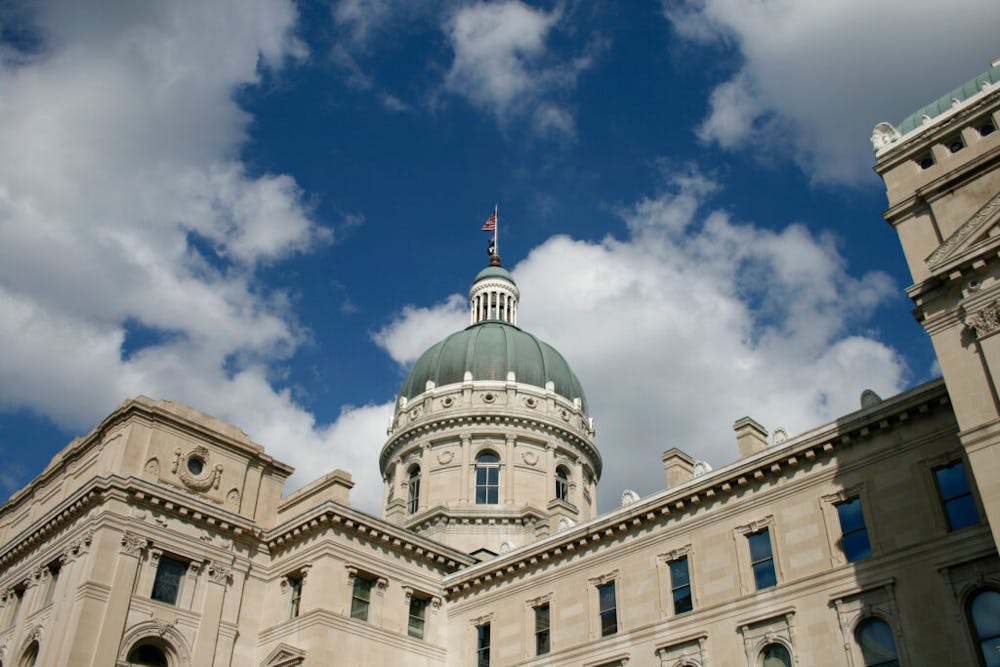Editor’s Note: This article highlights only a few of the bills being presented in Indiana courts and does not address any bills impacting other states. The research and information presented is accurate to the time of publication and does not reflect developments after the publication date. The views expressed in this article are not reflective of The Campus Citizen nor IUPUI as a whole.
In the 2024 legislative session, there were many bills introduced in both the Indiana Senate and House. More than 70 of these bills pertained to the state of education, affecting both students and staff from the K-12 to collegiate levels. The session ran from Jan. 8 to March 14. Below are four of the bills that were passed, and how their implementation may impact the future of education in Indiana.
SB 8 (Higher Education Matters)
SB 8 will take effect at the beginning of the 2025-2026 school year. This bill states that high schools need to offer, “the Indiana college core or submit a college core implementation plan to the commission for higher education.” It also establishes a variety of requirements to maintain the feasibility of associate and baccalaureate degree programs. Each state institution will also be required to offer at least one bachelor's program that can be completed in three years by a full-time student. The bill was signed into law on March 13.
SB 202 (State Educational Institutional Matters)
SB 202 pertains to the requirements of university diversity committees. It also has the potential to impact future board of trustee compositions. According to an article by The Bloomingtonian, “One of the most contentious aspects of the bill is the provision to replace two of IU's three alumni-elected trustees with political appointees. Critics argue that this move, coupled with the conservative supermajority in the state legislature, could diminish diversity and balance within the IU Board of Trustees.”
IUPUI faculty member, Kathleen Marrs, has spoken out about the negative implications of SB 202 on the higher education system.
The bill was signed into law on March 13.
HB 1137 (Civics Education and Religious Instruction)
HB 1137 creates unique circumstances for students who participate in local religious organizations. Through this bill, students would be able to receive a “faith-based” education for up to two hours per week during school hours. This bill would require “a principal to allow a student to attend religious instruction conducted by certain entities following the principal’s receipt of written notice from the student’s parent” given the student meets certain school attendance and academic standards requirements. When referring to “civics based reading instructional materials” HB 1137 specifies them as, “reading instruction materials for kindergarten through grade 3 that concern educational concepts of United States history or civics."
During the legislative session, language was added reminiscent of the language in SB 50 (Chaplains in Public Schools), that language was later removed from HB 1137.
The ACLU has also spoken out about concerns related to HB 1137, stating that, "The First Amendment doesn't allow government entities to prefer religion over non-religion or favor one faith over others. Also, specific to the public-school setting, the U.S. Supreme Court has urged vigilance about possible religious coercion of students." The ACLU also added, "Beyond the constitutional violations outlined above, HB 1137 would insert employees or volunteers who have no training in child development or even trauma informed care practice into the school environment. Indiana students need to know that the adults they go to for support have the training and expertise to provide it."
The bill was signed into law on March 13.
HB 1001 (Education and Higher Education Matters)
HB 1001 is a collection of a variety of amendments related to Indiana Educational Scholarship Account (ESA) and Career Scholarship Account(CSA) requirements.
According to the Indiana state website, ESA provides, “scholarship funding to students with disabilities which they can use to access to the educational environment that best meets their learning needs.” Also from the Indiana state website, CSA provides, “state-funded scholarships ($5,000 per student per school year) designed to help students pursue their interests by removing barriers to participation in the career preparation of their choice.” Programs such as internships, apprenticeships, applied learning experiences and credential attainment experiences are all eligible under the CSA.
One of the amendments presented in HB 1001 was for “CSA qualified expenses” which, according to this bill, is, “expenses to enroll in and attend sequences, courses, apprenticeships, or programs of study designated and approved under IC 20-51.4-4.5-6.” Among other educational costs, it will also cover costs related to obtaining a driver’s license. Later sections specify under what conditions this is applicable, as well as specifying this funding cannot be used for the purchase of a motor vehicle.
According to a WFYI report, Indiana Representative Vernon Smith raised concerns about what this bill would actually be providing to students stating, “He said funds to pay for a driver’s license won’t help students who don’t have a vehicle. The bill specifically states Career Scholarship Accounts cannot be used to purchase vehicles.”
ESA eligibility was also amended to include those, “who is a sibling of a student described in clause (A) who had had an ESA account established in the student’s name under IC 20-51.4-4-1.” This means that a student who is a sibling of another student with an ESA may qualify to open their own ESA.
A second amendment made related to ESAs was to the “ESA qualified expenses” which now also includes “curricular materials” under the first section that covers tuition and fees for “a qualified school, public school, or other ESA participatory entity.”
The bill was signed into law on March 13.
For more information about these bills, sites like Fast Democracy, LegiScan and the Indiana Public Broadcasting Stations (IPBS) site are all publicly accessible.
Abigail Godsen (she/her) is a sophomore majoring in Applied Information Sciences with a minor in Classics. She is a reporter, podcast co-host and Lead Copy Editor for The Campus Citizen. When she isn’t writing, Abby likes to cook, do crossword puzzles and drink a lot of tea. She can be summoned using tea, cardigans and books (according to her roommate Jackie).





